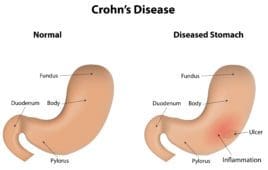
Immune Therapy Generates Promising Results in Ankylosing Spondylitis
Progress Toward Personalized Medicine
New Insights on Mosquitoes That Spread Disease
The Asian tiger mosquito (Aedes albopictus) is a highly invasive species and a vector of multiple pathogens including various viruses, such as chikungunya, dengue, and Zika. A new Medical and Veterinary Entomology study that evaluated the relationship between the mosquito’s presence and habitat variables at a small scale provides important information for planning effective prevention and control…
Hitchhiking to Kill
Lupus Treatment Generates Positive Results in Phase III Clinical Trial
Many Epilepsy Patients Take Drug Combinations That Interact
More Work is Needed to Determine Appropriate Drug Doses for Children
Children should not be considered ‘small adults’ when it comes to prescribing medications, but it can be difficult to determine the right dosage of a particular drug for young patients. A new British Journal of Clinical Pharmacology article analyzed drug dosage guidelines and found that guidelines given for pediatric doses are usually based on simple…
Are Women Really Under-represented in Clinical Trials?
Anti-Pancreatic Cancer Drug In Research Focus
Intriguing antitumor activity is found in a very promising class of natural compounds: cyclic depsipeptides, which have a challenging structure that makes their investigation difficult. Now, Chinese scientists have established the synthesis of a member compound, which is especially promising in killing pancreatic cancer stem cells. They describe its total synthesis and first test results…
Osteoporosis Drug Found Safe in Long-Term Trial
Biosimilar of Costly IBD Therapy Found Safe and Effective
Study Examines Effects of Osteoporosis Drugs in Children with Genetic Bone Disorders
Acid Suppression Medications Linked to Serious GI Infections
Study Reveals Scope, Characteristics of Adverse Drug Reactions in General Population
In a study of 1000 adult patients with unplanned admission to a tertiary hospital in Singapore, the prevalence of adverse drug reactions (ADRs) at the time of admission was 12.4 percent, and the prevalence of ADRs causing admission to the hospital was 8.1 percent. The most common ADRs were gastrointestinal-related, while the most common drug…












